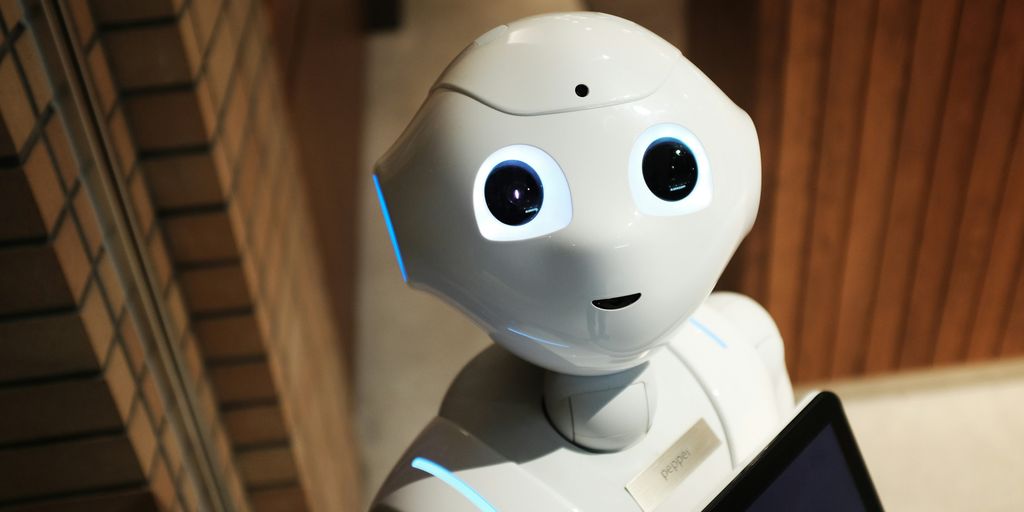AI is changing a lot of things, and healthcare is definitely one of them. We’re seeing new tools and ways of doing things that just weren’t possible even a year ago. This article will talk about how AI is showing up in healthcare, what it means for people getting care, and some of the things we need to watch out for as it becomes more common. It’s a big shift, and we need to make sure we handle it right.
Key Takeaways
- AI is helping doctors and researchers find new medicines and understand diseases better.
- It can make patient care more personal and help doctors spend more time with people.
- We need to be careful about things like data privacy and making sure AI is fair for everyone.
- AI can make it easier for patients and doctors to talk and work together.
- The goal is for AI to help us stay healthy before we get sick, and make healthcare more available.
The Current State of AI in the Healthcare Industry
AI is making waves in healthcare, and it’s not just hype anymore. It’s actually changing how things are done, from research to patient care. I remember when AI in medicine seemed like something out of a sci-fi movie, but now it’s becoming a real tool that doctors and researchers are using every day. It’s pretty wild to see how quickly things are moving.
Revolutionizing Drug Discovery and Clinical Trials
AI is seriously speeding up the process of finding new drugs. It can analyze tons of data to find potential treatments way faster than humans can. This means we could see new medications and therapies developed in a fraction of the time it used to take. Plus, AI is helping to make clinical trials more efficient by identifying the right candidates and predicting outcomes. It’s like having a super-powered research assistant that never sleeps. The use of AI in healthcare will only continue to grow.
Enhancing Diagnostic Accuracy and Treatment Planning
AI algorithms can spot things in medical images, like X-rays and MRIs, that doctors might miss. This can lead to earlier and more accurate diagnoses. AI can also help create personalized treatment plans based on a patient’s specific needs and medical history. It’s not about replacing doctors, but giving them better tools to make informed decisions. It’s like having a second opinion that’s based on a huge amount of data.
Streamlining Administrative Burdens in Healthcare
Let’s be real, paperwork is a huge pain in healthcare. AI can automate a lot of the administrative tasks that take up so much time, like scheduling appointments, processing insurance claims, and managing medical records. This frees up doctors and nurses to focus on patient care, which is what they’re actually trained to do. Plus, it can reduce errors and improve efficiency, which benefits everyone. This is shaping and improving the Human Experience for both patients and staff.
Human Experience in the Age of AI in Healthcare

AI’s impact isn’t just about algorithms and data; it’s fundamentally about people. How does AI change the way patients experience care? How does it affect the well-being of healthcare professionals? These are the questions we need to be asking. The goal is to use AI to make healthcare more human, not less.
Personalizing Patient Care and Building Trust
Imagine a world where healthcare is tailored to your specific needs and preferences. AI can analyze your medical history, lifestyle, and even your emotional state to create a personalized care plan. This isn’t just about recommending the right medication; it’s about understanding your unique challenges and providing support that truly resonates. For example, AI could help improve employee experience by identifying patients at risk of non-adherence and proactively reaching out with tailored interventions. This level of personalization can build trust and strengthen the patient-provider relationship.
Boosting Efficiency at the Systems Level
AI can streamline many of the administrative tasks that bog down healthcare systems. Think about it: fewer errors, faster processing times, and better resource allocation. This translates to shorter wait times for patients, more efficient workflows for staff, and ultimately, a more cost-effective healthcare system. It’s about making the whole machine run smoother, so everyone benefits. AI can also help with shaping and improving the Human Experience by automating tasks like appointment scheduling and insurance pre-authorization, freeing up staff to focus on patient care.
Improving Employee Experience and Health Outcomes
It’s easy to focus on the patient experience, but we can’t forget about the people who deliver that care. AI can help reduce burnout among healthcare professionals by automating routine tasks, providing decision support, and improving communication. When doctors and nurses are less stressed and more engaged, they’re better able to provide high-quality care. This leads to better health outcomes for patients and a more sustainable healthcare workforce. AI can assist with artificial intelligence in healthcare, which will have a profound effect on our collective mission: the delivery of safe, high-quality, and compassionate care.
Responsible AI in the Healthcare Industry
AI’s rapid integration into healthcare brings a lot of promise, but we can’t just jump in without thinking about the potential downsides. It’s like letting a kid play with a chemistry set – cool experiments, but someone needs to make sure they don’t blow up the house. We need to make sure AI is used responsibly and ethically. Healthcare’s core principle, "first, do no harm," should be our guide.
Addressing Data Integrity and Privacy Concerns
Data is the fuel that powers AI, but what happens if that fuel is contaminated? We need to be super careful about where the data comes from and how it’s handled. Think about it: if the data is wrong, the AI will be wrong too. And when it comes to health, wrong can have serious consequences. We need strong data privacy measures and protocols to protect patient information and ensure the data used to train AI is accurate and reliable. It’s not just about following the rules; it’s about building trust with patients.
Mitigating Algorithmic Biases and Ensuring Equity
AI algorithms are only as good as the data they’re trained on. If the data reflects existing biases, the AI will amplify those biases. This can lead to unequal or unfair outcomes for certain patient groups. For example, if an algorithm is trained mostly on data from one demographic, it might not work as well for people from other demographics. We need to actively work to identify and mitigate these biases. This means using diverse datasets, carefully evaluating algorithms for bias, and being transparent about how AI is used in healthcare. It’s about making sure AI helps everyone, not just some.
Navigating Unforeseen Hazards and Ethical Challenges
AI is still a relatively new technology, and we don’t know all the potential risks. There could be unforeseen consequences or ethical dilemmas that we haven’t even thought of yet. We need to be prepared to adapt and respond to these challenges as they arise. This means having strong oversight mechanisms, ethical guidelines, and a willingness to learn from our mistakes. It’s like driving a car – you need to be aware of the road and ready to react to unexpected situations. We need to think about the long-term implications of AI in healthcare and make sure we’re using it in a way that benefits society as a whole.
AI and the Patient-Physician Relationship
AI is changing how doctors and patients interact. It’s not about replacing doctors, but about making their jobs easier and improving patient care. The goal is to make the relationship stronger, not weaker.
Simplifying Documentation for Clinicians
Doctors spend a ton of time on paperwork. It’s a necessary evil, but it takes away from time they could be spending with patients. AI can help with this by automating a lot of the documentation. Imagine AI filling out forms, updating records, and even writing summaries of patient visits. This frees up doctors to focus on what they do best: taking care of people. Less time clicking through endless screens, more time actually listening to patients. It’s a win-win. A notable difference in AI adoption exists between employed and private practice physicians, with employed physicians showing higher usage.
Increasing Patient Engagement and Empowerment
AI can also help patients take a more active role in their health. Think about apps that send reminders to take medication, provide personalized health information, or even let patients track their symptoms. This keeps patients informed and engaged. Plus, AI-powered chatbots can answer basic questions, so patients don’t have to wait for a call back from the doctor’s office. It’s all about giving patients the tools they need to manage their health and feel more in control.
Enhancing Communication for Better Outcomes
Good communication is key to a strong patient-physician relationship. AI can help bridge communication gaps. For example, AI can translate medical jargon into plain language that patients can understand. It can also provide doctors with insights into a patient’s history and preferences, so they can tailor their communication accordingly. The success of AI in healthcare hinges on its ability to augment, not replace, the crucial role of human empathy, judgment and connection in the delivery of care. Ultimately, better communication leads to better outcomes and a stronger bond between doctor and patient. Here’s a quick look at how AI can improve communication:
- Real-time translation: Breaking down language barriers.
- Personalized messaging: Tailoring information to individual needs.
- Symptom tracking: Helping patients communicate changes effectively.
Transforming Healthcare Delivery with AI
AI is really changing how healthcare works, moving us away from just reacting to problems to actually getting ahead of them. It’s not just about fancy robots; it’s about making healthcare more accessible, efficient, and focused on keeping people healthy in the first place. AI’s ability to analyze data and automate tasks is paving the way for a more proactive and patient-centered approach to healthcare.
Shifting from Reactive to Proactive Health Management
Think about it: instead of waiting for you to get sick, AI can help predict potential health issues. Wearable devices and apps, powered by AI, can monitor your vital signs, activity levels, and even sleep patterns. This data can then be used to identify risks early on, allowing for timely interventions and lifestyle adjustments. It’s like having a personal health assistant that’s always on the lookout. For example, AI can analyze your heart rate data to predict potential cardiac events, giving you and your doctor time to take action. This shift towards proactive health management could significantly reduce hospitalizations and improve overall well-being.
Expanding Access to Care Through Telemedicine
Telemedicine has been around for a while, but AI is taking it to the next level. AI-powered telemedicine platforms can provide remote consultations, monitor patients with chronic conditions, and even offer mental health support. This is especially important for people in rural areas or those who have difficulty accessing traditional healthcare services. Imagine being able to consult with a specialist from the comfort of your own home, without having to travel long distances or wait for weeks for an appointment. AI can also help triage patients, ensuring that those with the most urgent needs are seen first. It’s about making healthcare more convenient and accessible for everyone.
Automating Routine Tasks for Healthcare Providers
Doctors and nurses spend a lot of time on administrative tasks, like filling out paperwork and scheduling appointments. AI can automate many of these routine tasks, freeing up healthcare providers to focus on what they do best: caring for patients. AI-powered systems can handle tasks like appointment scheduling, billing, and even prior authorizations. This not only reduces the administrative burden on healthcare providers but also improves efficiency and reduces costs. Plus, less time spent on paperwork means more time spent with patients, leading to better patient outcomes. It’s a win-win for everyone involved.
Potential Pitfalls and Ethical Considerations for AI in Healthcare
Ensuring Human Oversight and Collaboration
AI is making waves in healthcare, but we can’t just let the machines run wild. It’s super important to keep humans in the loop. We need doctors, nurses, and other healthcare pros working with the AI, not being replaced by it. AI can crunch data and spot patterns, but it can’t replace human judgment, empathy, or that gut feeling a good doctor gets. Plus, having people involved helps catch errors and make sure the AI is actually helping patients.
Addressing Data Bias and Representativeness
AI is only as good as the data it learns from, and if that data is biased, the AI will be too. Imagine an AI trained mostly on data from one demographic group. It might work great for those patients, but totally fail when it comes to someone from a different background. We need to make sure the data used to train AI is diverse and representative of all patients. Otherwise, we risk making existing healthcare disparities even worse. This is a big deal, and something we need to mitigate bias head-on.
Navigating Unforeseen Hazards and Ethical Challenges
AI in healthcare is still pretty new, and we don’t know all the potential problems that could pop up. What happens if an AI makes a wrong diagnosis? Who’s responsible? How do we protect patient privacy when AI is analyzing all their data? These are tough questions, and we need to start thinking about them now. We need clear ethical guidelines and regulations to make sure AI is used responsibly and doesn’t end up doing more harm than good. It’s like, we’re building this amazing tool, but we also need to build the ethical framework to use it safely. It’s a bit like the wild west out there right now, and we need to get a handle on it before things get out of control.
Wrapping It Up: AI’s Place in Healthcare
So, as we look ahead, it’s pretty clear that AI is going to keep changing healthcare. It’s not just some fancy new tool; it’s becoming a real part of how things work, from finding new medicines to helping doctors do their jobs better. We’ve got to be smart about it, though. Things like making sure the data is fair and keeping patient information safe are super important. The main idea is that AI should help people, not take away from the human touch that’s so important in healthcare. When people and AI work together, that’s when we’ll see the best results for everyone. It’s an exciting time, and it’s all about making healthcare better and more caring for all of us.
Frequently Asked Questions
How does AI make things easier for doctors and nurses?
AI helps doctors and nurses by taking care of many everyday tasks, like writing down patient notes or handling paperwork for insurance. This means healthcare workers can spend more time actually helping patients and less time on office work.
Can AI really help find illnesses and plan treatments better?
AI can help find diseases earlier and more accurately by looking at things like X-rays or lab results. It can also help doctors plan the best way to treat each person, making sure the care is just right for them.
Will AI make my healthcare feel more personal?
Yes, AI can make healthcare more personal. It helps understand what each patient needs and prefers, which can build trust. It also helps make sure that everyone gets good care, no matter where they are.
What are the big worries about using AI in healthcare?
We need to be careful with AI to make sure patient information stays private and that the AI doesn’t make unfair choices. It’s important to have rules and guidelines in place so AI is used in a good and fair way for everyone.
How can AI help me, the patient, be more involved in my health?
AI can help patients learn more about their health and even get care from far away using things like video calls. This helps people be more involved in their own health journey and makes it easier to get help when they need it.
How is AI changing the way we get healthcare?
AI can help healthcare move from only treating people when they’re sick to helping them stay healthy in the first place. It can also make it easier for people in faraway places to get medical help through online services.














